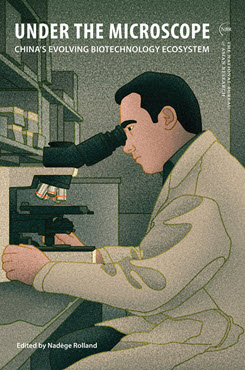Essay in NBR Special Report No. 114
The Divergence in Non-human Primate Research between the United States and China
Causes and Implications
This essay lays out the divergence in attitudes and approaches to non-human primate (NHP) research between the U.S. and China and considers the implications of the divergence for the future of U.S. biotechnology supremacy.
EXECUTIVE SUMMARY
MAIN ARGUMENT
NHP research plays a crucial role in developing our understanding of the human brain, producing treatments for human diseases and disorders, and shaping the future of emerging technologies like gene-editing tools and artificial intelligence. While the U.S. has historically been the global leader in NHP research and the advancements resulting from it, current trends indicate that the situation is changing. China is investing substantially in expanding its own NHP research capacity, has a friendly environment for NHP research, has a public climate supportive of scientific investigation, and is actively prioritizing research primates as a strategic resource. In contrast, funding for NHP research in the U.S. has been stagnant for nearly two decades, there is an acute shortage of research primates, and there is substantial pressure to end primate research entirely. Given the importance of NHPs for scientific research, the current research trends taking place in the U.S. and China are of substantial strategic importance and serve as an excellent case study of the steps China is taking to rapidly usurp the U.S. as the global leader of R&D more broadly.
POLICY IMPLICATIONS
- In a future where NHPs continue to be an invaluable research model, China is likely to have an advantage over the U.S. moving forward in control over the validation of new therapeutics and the development of emerging technologies.
- However, through the refinement of NHP research techniques and the rapid development of new tools and methods to replace NHPs, it is possible that the United States could still compete with China for supremacy in NHP-reliant research fields using comparatively inferior resources.
- Regardless of whether a high- or low-utility NHP research scenario occurs, investment in alternative methodologies and creative solutions to limit China’s advantage in NHP research could hold the key to helping the U.S. maintain its global science and technology supremacy.
Rowan Pierson is a JD candidate at the George Washington University Law School. He earned his AB in public and international affairs with highest honors from Princeton University, where he authored a senior thesis titled “The Strategic Importance of Monkeys: Divergence in Non-human Primate Research between the United States and China.”


